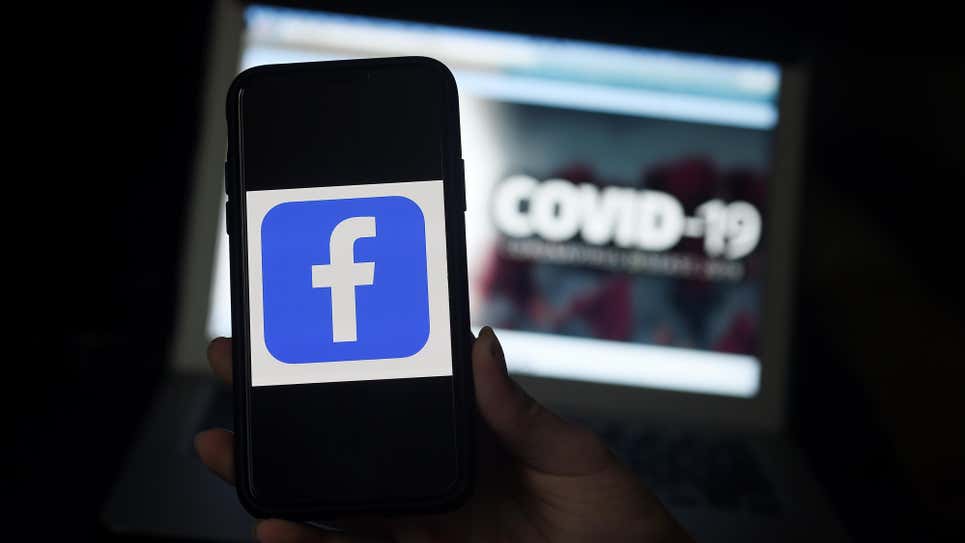After facing widespread criticism, Facebook has unveiled a transparency report that it initially shelved about the most popular posts on its public News Feed in the U.S. during the first quarter of 2021. The report offers a glimpse into how far misinformation about the covid-19 vaccine has spread online.
As first reported by the New York Times, which published a bombshell expose on Friday after obtaining a copy of the then-unreleased report, the most-viewed link on Facebook between January and March was a since-updated news article suggesting that the vaccine may be at fault for a Florida doctor’s death. The link racked up nearly 54 million views during this period.
According to Facebook’s report, among the top 20 most visited pages on the platform during the first quarter was the Epoch Times, a site that routinely pushes misinformation about the covid-19 pandemic and far-right conspiracies such as QAnon.
On Saturday, Facebook policy communications director Andy Stone tweeted that the criticism Facebook has faced for initially holding the report “wasn’t unfair,” but added that defining misinformation is a complex process:
“News outlets wrote about the south Florida doctor that died. When the coroner released a cause of death, the Chicago Tribune appended an update to its original story; NYTimes did not. Would it have been right to remove the Times story because it was COVID [misinformation]? Of course not. No one is actually suggesting this and neither am I. But it does illustrate just how difficult it is to define misinformation.”
Stone said that Facebook didn’t release the report earlier because there were “key fixes to the system” that the company wanted to make. He didn’t go into further detail about what those changes were exactly but posted a link to the report on Twitter. In a statement to the Washington Post, he said one change involved fixing a technical bug but declined to elaborate further.
On Twitter, Stone pointed to “slight differences” between this shelved report and the second-quarter report Facebook did publicly release earlier this week, adding that Facebook hopes to see even more progress in the third quarter. Facebook released its Q2 report on Aug. 18 showing the most popular posts in the U.S. from April to June, which paints the company in a more flattering light. The Epoch Times still makes an appearance, its subscription page ranking among the top 10 most viewed links, but most of the top-performing posts involved memes, recipes, heartwarming stories about animals, and, for some reason, storefronts for CBD products and Christianity-themed apparel.
However, whatever “key fixes” Facebook made between the two reports isn’t immediately clear. Comparing them side by side, their formats are nearly identical. Facebook uses different word choices to explain its findings, but its presentation of the data itself remains unchanged. Facebook did not immediately return Gizmodo’s request for comment.
It appears the only reason this first report ever even saw the light of day was because of the backlash to Facebook patting itself on the back for its transparency with the second report while burying a data set that made it look bad. To wit, Facebook vice president Guy Rosen touted the social network as “the far most transparent platform on the internet” in a statement to the Post earlier this week.
“We’re guilty of cleaning up our house a bit before we invited company,” Stone wrote on Twitter. “We’ve been criticized for that; and again, that’s not unfair… given the interest in the first version of the report we did not release, we’ve decided to just make it public. It’s not gleaming, but we’re trying to make progress.”

